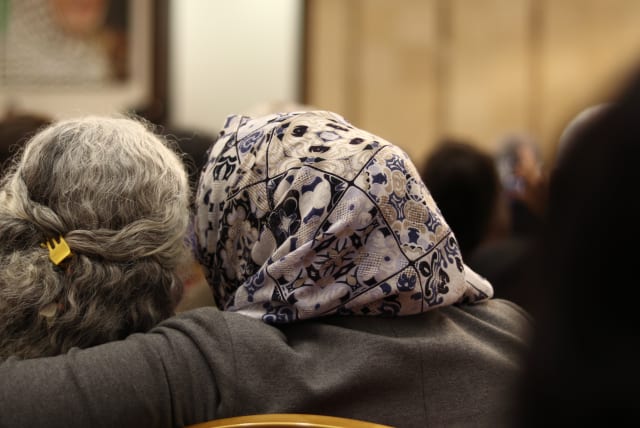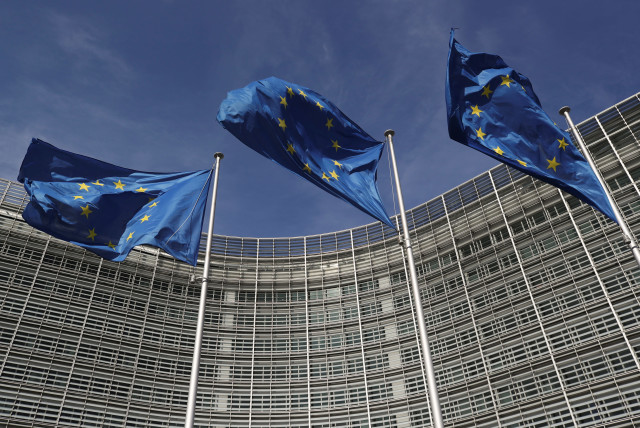Jews and Muslims fight for religious freedom together - editorial

With both antisemitism and Islamophobia on the rise in Europe, the Jewish and Muslim communities should take this rare opportunity to stand together to halt this trend.
It was bad enough that the European Court of Human Rights (ECHR) in Strasbourg upheld a ban by two Belgian regions on kosher and halal slaughter (shechita) on Tuesday, in a ruling that enraged both Jews and Muslims.
But then, rubbing salt in the wound, Flemish Minister for Animal Welfare Ben Weyts hailed the decision, saying it could herald a continent-wide ban.
“Now the door is open for a ban on ritual slaughter not only in Brussels but in the whole of Europe,” Weyts told VRT television.
With both antisemitism and Islamophobia on the rise in Europe, the Jewish and Muslim communities should take this rare opportunity to stand together to halt this trend.
It's time to unite to fight for religious freedom
As Rabbi Pinchas Goldschmidt, president of the Conference of European Rabbis, said, “the Jewish and Muslim communities of Europe will continue to fight for religious freedoms and equality,” but “that task is now made all the harder.”
The ECHR judgment, its first on the issue, followed a legal challenge by several Belgian nationals and organizations representing the Muslim and Jewish communities, arguing that Flemish decrees in the North and Walloon ones in the South – mandating that all animals slaughtered for human consumption be killed only after proper stunning procedures to limit animal suffering and promote humane slaughtering practices – violate their freedom of religion.
The bans, imposed in the two regions in 2017, were the result of a lengthy campaign by animal welfare activists.
While many EU countries still allow the killing of animals without anesthesia under certain requirements, such as veterinary oversight, eight others – including Denmark, Sweden, Slovenia and Greece – have banned shechita and require stunning before slaughter. The Court of Justice of the European Union (CJEU), the EU’s highest court, ruled in 2020 that member countries may ban the practice of ritual slaughter to promote animal welfare without infringing on the rights of religious groups.
The ECHR, whose task is to interpret the European Convention on Human Rights on behalf of the 46 member countries of the Council of Europe, found that the shechita proscription was justified to protect a legitimate aim and “proportionate to the aim pursued, namely the protection of animal welfare as an element of ‘public morals.’”In response to this week’s ruling, the European Jewish Congress expressed “deep concern” for the future of viable Jewish community life in Europe following the ruling. “We are already seeing attempts across Europe to follow this Belgian ban, now sadly legitimized by the ECHR,” EJC President Dr. Ariel Muzicant said.
“Jewish communities in Europe, now more than ever, need the protection of national governments and pan-European organizations to ensure that thousands of years of Jewish life on this continent do not come to an abrupt end,” he said. “Restrictions on fundamental aspects of Jewish religious freedom of expression, coupled with a background of massive increases in antisemitic attacks on Jewish communities, lead us to seriously consider whether Jews have a future in Europe.”
Maram Stern, executive vice president of the World Jewish Congress, expressed “profound dismay” at the ECHR’s judgment, emphasizing its detrimental effects on religious freedoms for both Jewish and Muslim communities across Europe. “The court’s ill-advised decision that perpetuates discrimination against Belgian Jews and Muslims is deplorable,” Stern said. “This ruling is a backward step, not a matter of animal welfare, but a clear suppression of religious freedom and liberty. We cannot stand idly by as instances of religious persecution unfold.”
The WJC called on European governments to recognize the seriousness of this ruling and to enact legislation that upholds the fundamental rights to freedom of religion and the significance of ritual slaughter in Jewish and Muslim religious practice within their respective countries.
“It is imperative for governing bodies to prevent actions that compromise the right to worship freely, rather than imposing restrictions that further marginalize religious communities,” said Stern.
As Dov Maimon, a senior fellow at the Jewish People Policy Institute, once wrote in The Jerusalem Post, Israel should also not turn a blind eye.
“The late [Israeli president and prime minister] Shimon Peres sent [former German Chancellor] Angela Merkel and the head of the European Union personal letters that persuaded them to reverse decisions to ban brit milah [ritual circumcision],” Maimon recalled, urging Israel “to consider mounting an intelligent and effective intervention” to also reverse the trend to ban shechita in Europe.
Jerusalem Post Store
`; document.getElementById("linkPremium").innerHTML = cont; var divWithLink = document.getElementById("premium-link"); if (divWithLink !== null && divWithLink !== 'undefined') { divWithLink.style.border = "solid 1px #cb0f3e"; divWithLink.style.textAlign = "center"; divWithLink.style.marginBottom = "15px"; divWithLink.style.marginTop = "15px"; divWithLink.style.width = "100%"; divWithLink.style.backgroundColor = "#122952"; divWithLink.style.color = "#ffffff"; divWithLink.style.lineHeight = "1.5"; } } (function (v, i) { });

